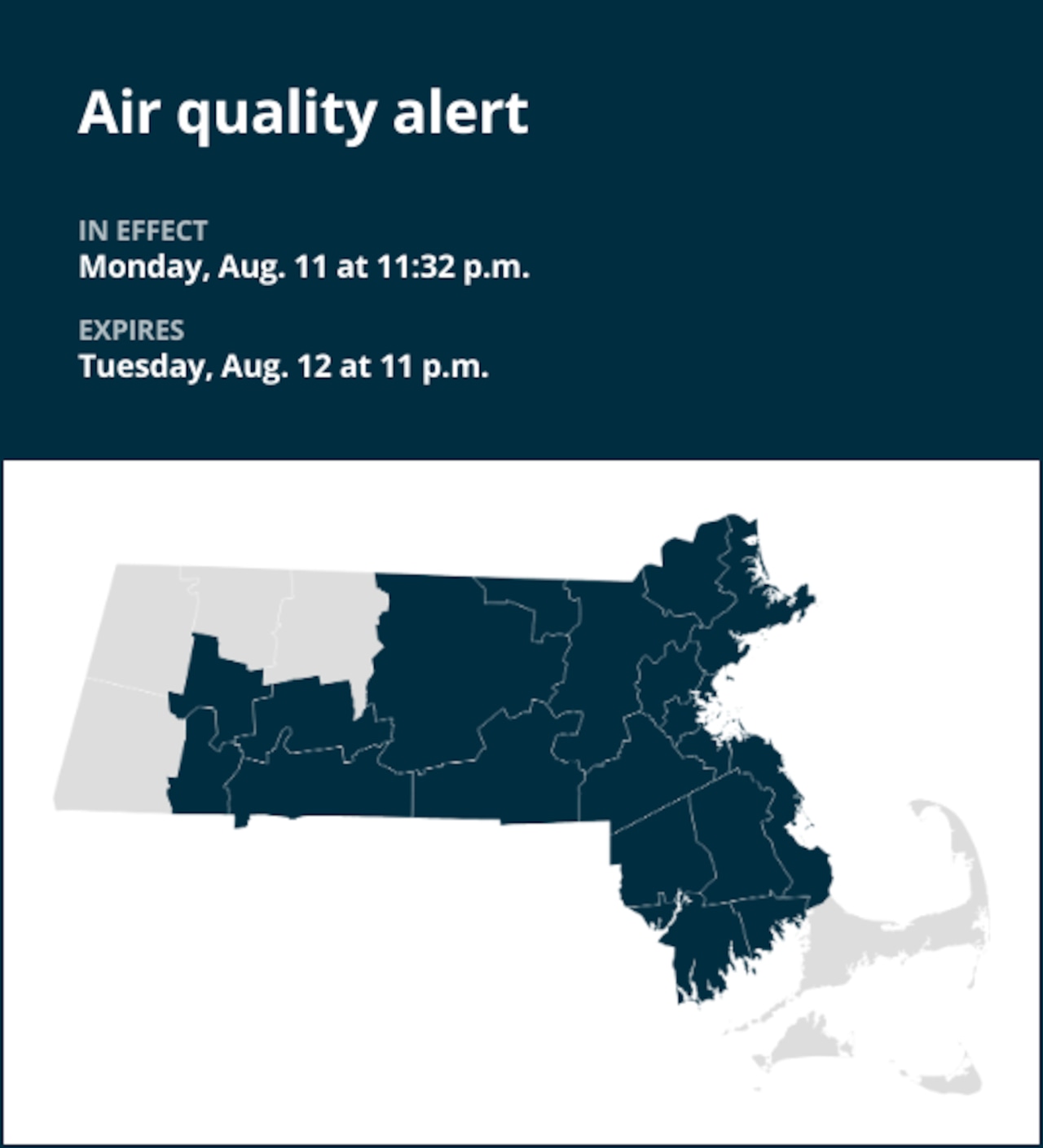At 11:32 p.m. on Monday, the National Weather Service issued an updated air quality alert that will be in force until Tuesday at 11 p.m. for the counties of Middlesex, Essex, Hampshire, Hampden, Norfolk, Suffolk, Bristol, and Plymouth, as well as Northern Worcester and Southern Worcester.
“From 11 a.m. until 11 p.m. on Tuesday, the Massachusetts Department of Environmental Protection has issued an Air Quality Alert for Ground Level Ozone. An air quality alert indicates that the region’s ground level ozone concentrations may be close to or higher than what is considered unhealthy for sensitive groups. Sensitive children and adults, including those with asthma, heart disease, or lung conditions, as well as elderly people, should avoid air. The weather service advises adults and sensitive youngsters to limit extended outdoor activities.
Air quality alerts: Recommendations from the weather service
Understanding the consequences of an air quality alert is essential when it appears on the radar. These weather service-issued alerts include simple but crucial instructions to keep you safe:
Take cover indoors whenever you can:
Stay indoors if you can, especially if you have respiratory conditions or other health issues, or if you are a kid or an elderly person.
Reduce your exposure to the outdoors:
If you can’t avoid being outside, limit your outdoor activities to the most basic ones. The secret is to spend less time outdoors.
Address the causes of pollution:
Watch out for actions that increase pollution, like using gas-powered lawnmowers, driving cars, or other motorized vehicles. Use them sparingly when there is an air quality alert.
Put an end to open burning:
During air quality alerts, avoid starting fires with debris or any other items. Such actions just make the issue of poor air quality worse.
Keep yourself informed:
Listen to NOAA Weather Radio or your favorite weather news source to stay informed. During air quality alerts, being informed enables you to make informed decisions about your outdoor activities.
Health warning for the respiratory system:
Be very careful if you have underlying medical diseases or respiratory issues. These circumstances may make you more susceptible to the negative consequences of low air quality.
You can lessen your exposure to potentially dangerous pollutants and improve your safety during air quality alerts by following the weather service’s suggestions. Remember to be alert, remain safe, and put your health first.
United Robots offers a service called Advance Local Weather Alerts that gathers the most recent information from the National Weather Service using machine learning.











